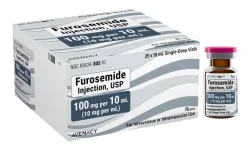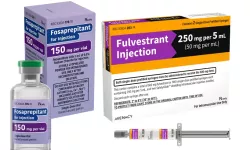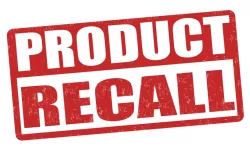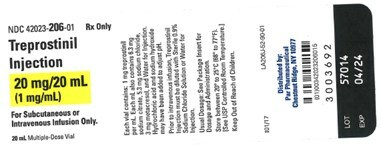Industry News

An artificial intelligence tool West Virginia University health data scientists are developing could lessen medication errors that send recently discharged patients back to the hospital while reducing health care costs.
At least 1.5 million people are harmed by medication errors every year, according to the Academy of Managed Care Pharmacy, and the cost for treating these drug-related injuries occurring in hospitals alone is estimated at $3.5 billion annually.
“Because of this we need to provide better tools to our clinicians,” said Abdullah Al-Mamun, assistant professor in the WVU School of Pharmacy Department of Pharmaceutical Systems and Policy, who is leading the project. “We will develop a tool where we’ll go through each of the patient’s records for the medication reconciliation process. Our goal is to build an alert system that shows if the patient has a higher chance of getting readmitted.”
Medication reconciliation is a standard practice clinicians perform before patients are discharged from the hospital. The process is a review of prescriptions and over-the-counter treatments they were taking prior to and during their stay. The result should be a comprehensive list of what to take — and not take — along with specific dosages when they return home. However, Mamun said since information is gathered from multiple clinicians to make care recommendations, the procedure oftentimes becomes convoluted.
“This is where 85% of the errors happen,” Mamun said. “During a patient’s time in the hospital, medications are changed to improve the outcome. The patient cannot go home with the same amounts of medications they were given in the hospital. There should be an adjustment.”
As a remedy, Mamun points to studies showing a 50% reduction in 30-day readmission rates when a transition-of-care pharmacist took over medication reconciliation. His project aims to make the pharmacist’s job more efficient and effective through this AI-driven tool.
Mamun explained hospitals use electronic data systems containing information on medications and billing, along with notes from physicians, nurses and pharmacists. For medication reconciliation, a pharmacist spends between 30 to 50 minutes reviewing those records for each discharge patient, which can number around 200 a day in a facility the size of J.W. Ruby Memorial Hospital.
Mamun and members of his HealBig research lab want to streamline the process.
“That’s where the AI comes in,” Mamun said. “It will pull all these data and using different algorithms will build a profile for the patient. That will make the process more accurate and much faster and improve medication safety.”
The HealBig team will employ the AI method of deep learning for natural language processing to allow the program to understand certain words and phrases in clinicians’ notes. Based on factors — such as medical history and current physical condition — in each patient’s profile, the tool will also be able to determine the risk of readmission and create an alert system for pharmacists.
“Let’s say patient X is feeling better, but my tool says he has a 90% chance of coming back to the hospital in 30, 60 or 90 days. That would raise a flag,” Mamun said. “The pharmacist could go back to the interprofessional care team so they could go over the patient’s profile one more time to see if they should keep him in the hospital a couple more days. Something like that could save a patient’s life.”
The use of AI technology will also benefit students in Mamun’s lab by giving them the experience of learning data science tools they can use later in their professional careers.
“They will learn different dimensions of how to ultimately improve patient outcomes,” Mamun said. “When they are exposed to projects like this, they become more motivated to do research.”
Ki Jin Jeun, a graduate research assistant majoring in health services and outcomes research, will work on the statistical analyses. Other students in the WVU Pharmacy doctoral programs will join the project as it progresses.
With a two-year, $100,000 grant from the American College of Clinical Pharmacy, Mamun is working on the project with Kazuhiko Kido, clinical associate professor.
The team will first develop an alert system prototype. Mamun said the next step will be to integrate the tool into a hospital’s electronic data system and run a pilot test. For that phase, the team plans to seek a larger grant.
“The next phase will be challenging because that’s where the real interaction comes into the system,” Mamun said. “We will need a lot of resources and clinical experts. It’s very exciting to bring health data science and AI technologies into the medical field, especially in pharmacy. This will help payers, medical providers and, ultimately, clinicians to make better decisions.”

HENDERSON, NC - UNC Health Pardee is pleased to announce the opening of Pardee Rx, a community pharmacy for Pardee patients, teammates, and community members. Pardee Rx offers a wide variety of generic and brand-name drugs as well as a complete selection of over-the-counter medications, vitamins, health and wellness needs, pediatric care items, and common medical supplies. The pharmacy is now open adjacent to the Pardee BlueMD -1027 Fleming St. primary care office in Hendersonville.
With the opening of Pardee Rx, Pardee is also pleased to welcome pharmacists Bryce Caldwell, PharmD, and Kenesha Smith, PharmD, to the team. Caldwell and Smith are available for consultations, whether to provide an answer to a question or education about medication.
“Our commitment to the community is what makes Pardee Rx different from other pharmacies,” said Johnna Reed, Chief Administrative Officer, UNC Health Pardee. “We are built on the strength of a team that includes physicians, pharmacists, case workers, nurses, medical assistants, and others who are focused on the goal of a healthy community. From medical assistance programs to affordable prescriptions, Pardee Rx is here for you.”
Through Pardee’s affiliation with Pardee BlueMD and its federally qualified health center (FQHC) status, the pharmacy can offer services to all patients, regardless of ability to pay. The pharmacy is open Monday through Friday from 8am - 6pm. For more information or questions call 828-435-8142.
UNC Health Pardee is a not-for-profit community healthcare organization and is managed by UNC Health. The hospital, founded in 1953, is licensed for 222 acute care beds. Pardee has several locations separate from the main campus, including a comprehensive physician practice network, a cancer center, four urgent care locations and six orthopedic clinics. For more information or to find a physician, visit pardeehospital.org.

SCHAUMBURG, IL - Avenacy, a specialty pharmaceutical company focused on supplying critical injectable medications, today announced it has launched Furosemide for Injection in the United States as a therapeutic equivalent generic for Lasix® for Injection (furosemide) approved by the U.S. Food and Drug Administration. Furosemide is indicated in adults and pediatric patients for the treatment of edema associated with congestive heart failure, cirrhosis of the liver, and renal disease, including the nephrotic syndrome. Furosemide is particularly useful when an agent with greater diuretic potential is desired.
“The launch of Furosemide for Injection builds on the two launches announced earlier this week and further demonstrates the speed at which we are progressing the business,” said Jeff Yordon, Co-Founder and CEO of Avenacy. “The reception by potential partners and investors to Avenacy at DCAT has been outstanding and, with five products now launched since our formation in October, we look forward to continuing to execute against our goal of launching more than 20 products this year.”
Avenacy's Furosemide will come in packs of 25 units of 100 mg/10 mL doses. In line with Avenacy’s mission to champion patient safety and streamline patient care, Furosemide for Injection will feature the Company’s highly differentiated packaging and labeling to support accurate medication selection. Avenacy will begin shipping Furosemide for Injection to wholesale partners next week. The Company is supported by a global network of development and FDA-approved cGMP-certified contract manufacturing partners.
Furosemide for Injection had U.S. sales of approximately $33 million for the twelve months ending in June 2023.1
To learn more about Avenacy’s products or the Company’s exciting growth plans for 2024, please see the Avenacy management team at DCAT Week 2024 taking place in New York City from March 18-21st. To request a meeting with a member of the Avenacy team, please reach out to Avenacy@fticonsulting.com.
Warning
Furosemide is a potent diuretic which, if given in excessive amounts, can lead to a profound diuresis with water and electrolyte depletion. Therefore, careful medical supervision is required and dose and dose schedule must be adjusted to the individual patient's needs.
Please see link for Full Prescribing Information including the Boxed Warning.
Furosemide is indicated as adjunctive therapy in acute pulmonary edema. The intravenous administration of furosemide is indicated when a rapid onset of diuresis is desired, e.g., in acute pulmonary edema. If gastrointestinal absorption is impaired or oral medication is not practical for any reason, furosemide is indicated by the intravenous or intramuscular route. Parenteral use should be replaced with oral furosemide as soon as practical.
Lasix® is a registered trademark of Sanofi S.A.
1Source: IQVIA

SCHAUMBURG, IL - Avenacy, a specialty pharmaceutical company focused on supplying critical injectable medications, today announced it has launched Fosaprepitant for Injection and Fulvestrant Injection in the United States.
“Avenacy has had a strong start to 2024, with two product launches already executed and two more newly announced additions to our rapidly expanding portfolio. Since the Company’s launch in October, we have invested in bringing high-demand injectable products to market and strengthening our global network of development and manufacturing partners, and we are ready to build upon this important foundation as we prepare for significant growth,” said Jeff Yordon, Co-Founder and CEO of Avenacy. “We are looking forward to participating in DCAT 2024, where we will be discussing how Avenacy is well-positioned to continue addressing key gaps in the U.S. drug supply landscape through its differentiated portfolio, robust pipeline, and unwavering commitment to quality, safety, and patient care.”
Fosaprepitant for Injection is a therapeutic equivalent generic for Emend® (fosaprepitant) approved by the U.S. Food and Drug Administration. Fosaprepitant for Injection, in combination with other antiemetic agents, is indicated in adults for the prevention of:
- Acute and delayed nausea and vomiting associated with initial and repeat courses of highly emetogenic cancer chemotherapy (HEC) including high-dose cisplatin
- Delayed nausea and vomiting associated with initial and repeat courses of moderately emetogenic cancer chemotherapy (MEC).
Fosaprepitant for Injection had U.S. sales of approximately $35 million for the twelve months ending in June 2023.1 Avenacy’s product contains 150 mg of Fosaprepitant as a lyophilized powder in a single-dose vial for reconstitution.
Fulvestrant Injection is a therapeutic equivalent generic for Faslodex® (fulvestrant) approved by the U.S. Food and Drug Administration. Fulvestrant Injection is indicated for:
- Monotherapy use for the treatment of hormone receptor (HR)-positive, human epidermal growth factor receptor 2 (HER2)-negative advanced breast cancer in postmenopausal women not previously treated with endocrine therapy; or HR-positive advanced breast cancer in postmenopausal women with disease progression following endocrine therapy.
- Combination therapy use for the treatment of HR-positive, HER2-negative advanced or metastatic breast cancer in postmenopausal women in combination with ribociclib as initial endocrine based therapy or following disease progression on endocrine therapy; or HR-positive, HER2-negative advanced or metastatic breast cancer in combination with palbociclib or abemaciclib in women with disease progression after endocrine therapy.
Fulvestrant Injection had U.S. sales of approximately $71 million for the twelve months ending in June 2023.1 Avenacy’s product is supplied as 5 mL pre-filled syringes for injection containing 250 mg per 5 mL Fulvestrant.
Please see links for Full Prescribing Information of Fosaprepitant for Injection and Fulvestrant Injection.
In line with Avenacy’s mission to champion patient safety and streamline patient care, Fosaprepitant for Injection and Fulvestrant Injection will feature the Company’s highly differentiated packaging and labeling to support accurate medication selection. Avenacy will begin shipping Fosaprepitant for Injection and Fulvestrant Injection to wholesale partners this week.
Since launching in October of last year, Avenacy, backed by a robust global network of development and FDA-approved cGMP-certified contract manufacturing partners, has already brought four injectable products to the U.S. market. The company is poised to continue this trajectory with plans to pursue 20+ additional products for launch this year.
To learn more about Avenacy’s products or the Company’s exciting growth plans for 2024, please see the Avenacy management team at DCAT Week 2024 taking place in New York City from March 18-21st. To request a meeting with a member of the Avenacy team, please reach out to Avenacy@fticonsulting.com.
Emend® is a registered trademark of Merck & Co.
Faslodex® is a registered trademark of AstraZeneca.
1Source: IQVIA

GRAND RAPIDS, MI - SpendMend, a leading provider of solutions to optimize the cost cycle for the healthcare industry, today unveiled the latest iteration of its pharmacy analytics and procurement software, Trulla. This upgraded release showcases numerous improvements to functionality and user experience.
Trulla, by SpendMend, is a cloud-based application that leverages proprietary AI algorithms to highlight financial leakage and dark data in pharmacy spend. To date, Trulla has saved hospitals and health systems over $250 million in drug costs. In 2023, clients averaged an annual savings of 1.6% of their pharmacy spend – which equated to an average daily cost savings of over $12,000, per client.
Developed by pharmacy professionals, Trulla software enables pharmacy leaders to leverage in-depth analytics in real-time while automating the correct pharmacy contract with the most preferred NDC (National Drug Code) and supplier for pharmacy buyers. This cutting-edge solution empowers pharmacy buyers to work effortlessly across all locations within a single, user-friendly system.
Previously focused solely on large integrated delivery networks, the Trulla platform now extends its services beyond this threshold, catering to institutions of varying sizes within the healthcare landscape. This expansion democratizes access to cost-saving solutions in the pharmacy domain, ensuring that smaller healthcare providers can benefit from Trulla's advanced capabilities. By broadening its reach, SpendMend is further reinforcing its commitment to driving tangible cost savings across the healthcare sector.
"We are thrilled to unveil the latest iteration of Trulla, designed to serve a broader spectrum of pharmacies within the healthcare landscape," says Curtis McEntire, VP of Trulla Solutions at SpendMend. "Having witnessed firsthand the challenges faced by pharmacies in optimizing pharmacy procurement, I am proud that Trulla can now contribute to enhancing patient care by empowering smaller institutions with the tools they need to thrive."
"The potential impact of this new release is very exciting," remarks Jake Thompson, VP of SpendMend Pharmacy. "Trulla has supported smaller hospitals when a part of a large IDN, but our new release allows us to support even small IDNs and small independent facilities.”
For more information about Trulla and SpendMend's suite of cost-saving solutions, visit https://www.spendmend.com/solutions/pharmacy-solutions/pharmacy-procurement-software/.

Approximately 98 million American adults—about one in three—have prediabetes, nearly 40 million Americans have diabetes, and more than 40% of adults in the U.S. are obese. Treatments for diabetes and obesity-related conditions show promise to help alleviate a growing disease burden, but access to newer, clinically proven medications remains limited.
To help patients being treated for diabetes, obesity, and migraine, Amazon Pharmacy is now offering home delivery of select medications through LillyDirect. Lilly has selected Amazon Pharmacy to serve as a third-party dispensing provider for LillyDirect Pharmacy Solutions, delivering prescribed Lilly medications directly to a patient’s home.
At Amazon Pharmacy, we believe access to high-quality pharmacy support is essential to good health care. Our clinical pharmacists review each incoming prescription for accuracy, appropriateness, and drug interactions. We offer 24/7 access to a clinical pharmacist for patients who have questions about their care. And, our world-class logistics and supply chain management enable customers to get their prescribed medications delivered on time and directly to their door, with ongoing tracking updates and access to customer care teams.
High-quality clinical support
or many patients who start using insulin, or injectable medications for migraine or obesity, this will be the first time they administer an injection. Amazon pharmacists can support medication management by providing guidance on administration techniques, drug interactions, side effects, and cost considerations. Pharmacists can also assist with reminder tools to help patients stay consistent with their medication schedule. Amazon Pharmacy’s clinical team remains available 24/7 to respond to care questions and support care.
Treating diabetes and obesity can slow or prevent the onset of cardiovascular disease, reducing the risk of heart attack or stroke, as well as reducing the risk of some cancers, osteoarthritis, and more. We’re pleased to work with Lilly to reimagine a pharmacy experience that can support better care outcomes. Physicians may send prescriptions to LillyDirect Pharmacy Solutions or to Amazon Pharmacy.
What medications are available through LillyDirect?
A full list of Lilly medicines currently available via LillyDirect can be found at https://lillydirect.lilly.com/medicines.
What medications are available through Amazon Pharmacy?
Amazon Pharmacy is a digital-first, full-service pharmacy on Amazon.com. We carry most medications prescribed at the doctor’s office, and deliver right to your door, with free two-day delivery for Prime members. Amazon Pharmacy accepts most insurance plans, and offers additional ways to save with PrimeRx and RxPass.

AstraZeneca announced that it has entered into a definitive agreement to acquire Amolyt Pharma, a clinical-stage biotechnology company focused on developing novel treatments for rare endocrine diseases.
The proposed acquisition will bolster the Alexion, AstraZeneca Rare Disease late-stage pipeline and expand on its bone metabolism franchise with the notable addition of eneboparatide (AZP-3601), a Phase III investigational therapeutic peptide with a novel mechanism of action designed to meet key therapeutic goals for hypoparathyroidism. Additionally, Alexion is looking forward to welcoming talent from Amolyt Pharma.
In patients with hypoparathyroidism, a deficiency in parathyroid hormone (PTH) production results in significant dysregulation of calcium and phosphate, which can lead to life-altering symptoms and complications, including chronic kidney disease.1 It is one of the largest known rare diseases, affecting an estimated 115,000 people in the United States and 107,000 people in the European Union, approximately 80% of whom are women.2,3
Marc Dunoyer, Chief Executive Officer, Alexion, AstraZeneca Rare Disease, said: “Chronic hypoparathyroid patients face a significant need for an alternative to current supportive therapies, which do not address the underlying hormone deficiency. As leaders in rare disease, Alexion is uniquely positioned to drive the late-stage development and global commercialisation of eneboparatide, which has the potential to lessen the often debilitating impact of low parathyroid hormone and avoid the risks of high-dose calcium supplementation. We believe this programme, together with Amolyt’s talented team, expertise and earlier pipeline, will enable our expansion into rare endocrinology.”
Thierry Abribat, Chief Executive Officer, Amolyt Pharma, said: “We enthusiastically welcome the proposed acquisition of Amolyt by AstraZeneca, an organisation that shares our dedication to delivering life-changing treatments to people living with rare diseases. This agreement offers the opportunity to meaningfully advance our pipeline therapies. Strong Phase II data suggest eneboparatide has the potential to improve outcomes for patients and to shift the treatment paradigm for hypoparathyroidism, and we look forward to seeing the continued advancement of the Phase III trial.”
Eneboparatide is a PTH receptor 1 (PTHR1) agonist with a novel mechanism of action rationally designed to meet the therapeutic goals of hypoparathyroidism.4 Phase II data showed that eneboparatide achieved normalisation of serum calcium levels as well as the potential to eliminate dependence on daily calcium and vitamin D supplementation. In adults with chronic hypoparathyroidism and hypercalciuria, results showed that eneboparatide normalised calcium in urine. In addition, for patients with hypoparathyroidism, eneboparatide preserved bone mineral density, an important potential benefit in patients with an increased risk of osteopenia or osteoporosis.5
Financial considerations
Under the terms of the agreement, AstraZeneca will acquire all of Amolyt Pharma’s outstanding shares for a total consideration of up to $1.05 billion, on a cash and debt free basis. This includes $800 million upfront at deal closing, plus the right for Amolyt Pharma’s shareholders to receive an additional contingent payment of $250 million payable upon achievement of a specified regulatory milestone.
Subject to the satisfaction of customary closing conditions in the acquisition agreement, including regulatory clearances, the transaction is expected to close by the end of the third quarter of 2024.
Notes
Eneboparatide (AZP-3601)
Eneboparatide (AZP-3601) is an investigational therapeutic peptide designed to bind with high affinity to a specific conformation of the parathyroid hormone (PTH) receptor 1. Therapeutic goals include: regulating and maintaining serum calcium levels in the normal range, and thereby managing the symptoms of hypoparathyroidism; limiting urine calcium excretion by restoring calcium reabsorption by the kidney; and potentially preventing progressive decline in kidney function and the development of chronic kidney disease. Eneboparatide is also designed to have a short plasma half-life to potentially restore bone turnover to a more physiologic state and to help preserve bone integrity.
Hypoparathyroidism
Hypoparathyroidism is a rare condition defined by a deficiency of parathyroid hormone that results in decreased calcium and elevated phosphorus levels in the blood.1 Approximately 80% of the estimated 115,000 people in the United States and 107,000 in the European Union with hypoparathyroidism are women.2,3 Despite available treatments, patients experience persistent, life-altering symptoms and often develop complications and comorbidities that diminish quality of life and create segments of the patient population with specific clinical needs. Clinical manifestations of hypoparathyroidism impact many tissues and organ systems, in particular, the kidneys and bone.6,7
Forward-looking statements
This announcement may include statements that are not statements of historical fact, or “forward-looking statements,” including with respect to AstraZeneca’s proposed acquisition of Amolyt Pharma. Such forward-looking statements include, but are not limited to, the ability of AstraZeneca and Amolyt Pharma to complete the transactions contemplated by the acquisition agreement, including the parties’ ability to satisfy the conditions set forth in the acquisition agreement, statements about the expected timetable for completing the transaction, AstraZeneca’s and Amolyt Pharma’s beliefs and expectations and statements about the benefits sought to be achieved in AstraZeneca’s proposed acquisition of Amolyt Pharma, the potential effects of the acquisition on both AstraZeneca and Amolyt Pharma, the possibility of any termination of the acquisition agreement, as well as the expected benefits and success of eneboparatide (AZP-3601). These statements are based upon the current beliefs and expectations of AstraZeneca’s and Amolyt Pharma’s management and are subject to significant risks and uncertainties. There can be no guarantees that the conditions to the closing of the proposed transaction will be satisfied on the expected timetable or at all or that eneboparatide (AZP-3601) will receive the necessary regulatory approvals or prove to be commercially successful if approved. If underlying assumptions prove inaccurate or risks or uncertainties materialise, actual results may differ materially from those set forth in the forward-looking statements. Risks and uncertainties include, but are not limited to, uncertainties as to the timing of the acquisition; the possibility that various conditions to the consummation of the acquisition contemplated by the acquisition agreement may not be satisfied or waived; the ability to obtain necessary regulatory approvals or to obtain them on acceptable terms or within expected timing; the effects of disruption from the transactions contemplated by the acquisition agreement and the impact of the announcement and pendency of the transactions on Amolyt Pharma’s business; the risk that shareholder litigation in connection with the offer or the acquisition may result in significant costs of defence, indemnification and liability; the possibility that the achievement of the specified milestone described in the acquisition agreement may take longer to achieve than expected or may never be achieved and the resulting contingent milestone payment may never be realised; general industry conditions and competition; general economic factors, including interest rate and currency exchange rate fluctuations; the impact of COVID-19; the impact of pharmaceutical industry regulation and health care legislation in the United States and internationally; competition from other products; and challenges inherent in new product development, including obtaining regulatory approval.
Neither AstraZeneca nor Amolyt Pharma undertakes any obligation to publicly update any forward-looking statement, whether as a result of new information, future events or otherwise, except to the extent required by law. Additional factors that could cause results to differ materially from those described in the forward-looking statements can be found in AstraZeneca’s Annual Report on Form 20-F for the year ended 31 December 2023, as amended by any subsequent filings made with the SEC. These and other filings made by AstraZeneca with the SEC are available at www.sec.gov.
Alexion
Alexion, AstraZeneca Rare Disease, is the group within AstraZeneca focused on rare diseases, created following the 2021 acquisition of Alexion Pharmaceuticals, Inc. As a leader in rare diseases for more than 30 years, Alexion is focused on serving patients and families affected by rare diseases and devastating conditions through the discovery, development and commercialisation of life-changing medicines. Alexion focuses research efforts on novel molecules and targets that include the complement cascade, and development efforts in haematology, nephrology, neurology, metabolic disorders, cardiology and ophthalmology. Headquartered in Boston, Massachusetts, Alexion has offices around the globe and serves patients in more than 70 countries.
AstraZeneca
AstraZeneca (LSE/STO/Nasdaq: AZN) is a global, science-led biopharmaceutical company that focuses on the discovery, development, and commercialisation of prescription medicines in Oncology, Rare Diseases, and BioPharmaceuticals, including Cardiovascular, Renal & Metabolism, and Respiratory & Immunology. Based in Cambridge, UK, AstraZeneca operates in over 100 countries and its innovative medicines are used by millions of patients worldwide. Please visit astrazeneca.com and follow the Company on social media @AstraZeneca.
References
1. Clarke BL, et al. Epidemiology and diagnosis of hypoparathyroidism. J Clin Endocrinol Metab. 2016;101(6):2284-99.
2. Vadiveloo, T, et al. A Population-based study of the Epidemiology of Chronic Hypoparathyroidism. J Bone Miner Res. 2018;33(3):478-485.
3. Villarroya-Marquina I, et al. Influence of gender and women's age on the prevalence of parathyroid failure after total thyroidectomy for multinodular goiter. Gland Surg. 2020;9(2):245-251.
4. Khan A, et al. Evaluation and management of hypoparathyroidism summary statement and guidelines from the second international workshop. J Bone Miner Res. 2022;37(12):2568-2585.
5. Kamenicky P, et al. OR23-04 Treatment of chronic hypoparathyroidism with eneboparatide (AZP-3601), a novel PTH 1 receptor agonist: results from a phase 2 trial. Journal of the Endocrine Society. 2023;7(Supplement_1): bvad114.562.
6. Bilezikian JP. Hypoparathyroidism. J Clin Endocrinol Metab. 2020;105(6):1722–36.
7. Abate EG, et al. Review of Hypoparathyroidism. Front Endocrinol (Lausanne). 2017;7:172.

DUBLIN - Endo International plc announced today that one of its operating companies, Par Pharmaceutical, Inc. (Par), is voluntarily recalling one lot of Treprostinil Injection 20mg/20mL (1mg/mL) to the consumer level. The product is being recalled due to the potential for the presence of silicone particulates in the product solution.
Administration of an injectable product that contains particulate matter may result in local irritation or swelling in response to the foreign material. If the particulate matter reaches the blood vessels it can travel to various organs and block blood vessels in the heart, lungs or brain which can cause stroke and even lead to death. To date, Par has not received any reports of adverse events related to this recall.
Treprostinil Injection is formulated for subcutaneous or intravenous infusion. The product is a prostacyclin vasodilator indicated for the treatment of pulmonary arterial hypertension to diminish symptoms associated with exercise and for patients who require transition from epoprostenol to reduce the rate of clinical deterioration.
Treprostinil Injection 20mg/20mL (1mg/mL) is distributed in 20mL multidose vials as sterile solutions in water for injection, individually packaged in cartons under NDC #42023-206-01. Only Lot 57014, expiration date 04/2024 is affected by this recall. The lot was distributed nationwide to wholesalers and hospitals from June 16, 2022, through October 17, 2022.
The image included with this release shows the vial label of the affected lot.

Par is providing written notification to wholesale accounts and the hospital location that have received the affected lot and is arranging for return of all existing inventory of Lot 57014 through Inmar, Inc. Wholesale distributors and hospital pharmacies that have the product being recalled should immediately discontinue use and stop distribution immediately. If you have further distributed the recalled product, please notify your accounts or any additional locations which may have received the recalled product.
For information regarding the recall process, call Inmar, Inc. at 1-855-410-3565 Monday through Friday between the hours of 9 am and 5 pm ET. For medical or technical product information or to report a product complaint or adverse event please call 1-800-828-9393.
Consumers should contact their physician or healthcare provider if they have experienced any problems that may be related to taking or using this drug product.
Adverse reactions or quality problems experienced with the use of this product may be reported to the FDA's MedWatch Adverse Event Reporting program either online, by regular mail or by fax.
- Complete and submit the report Online: www.fda.gov/medwatch/report.htm
- Regular Mail or Fax: Download form www.fda.gov/MedWatch/getforms.htm or call 1-800-332-1088 to request a reporting form, then complete and return to the address on the pre-addressed form, or submit by fax to 1-800-FDA-0178
This recall is being conducted with the knowledge of the U.S. Food and Drug Administration.

RAHWAY, NJ - Merck (NYSE: MRK), known as MSD outside of the United States and Canada, today announced the completion of the acquisition of Harpoon Therapeutics, Inc. (Nasdaq: HARP). Harpoon is now a wholly-owned subsidiary of Merck, and Harpoon’s common stock will no longer be publicly traded or listed on the Nasdaq Stock Market.
“We continue to augment and diversify our oncology pipeline with innovative approaches to help people with cancer worldwide,” said Dr. Dean Y. Li, president, Merck Research Laboratories. “We are pleased to welcome our Harpoon colleagues to Merck and look forward to working together to advance a novel portfolio of T-cell engagers, including MK-6070.”
Harpoon’s lead candidate, MK-6070 (formerly known as HPN328), is a T-cell engager targeting delta-like ligand 3 (DLL3), an inhibitory canonical Notch ligand that is expressed at high levels in small cell lung cancer (SCLC) and neuroendocrine tumors. The safety, tolerability and pharmacokinetics of MK-6070 is currently being evaluated as monotherapy in a Phase 1/2 clinical trial (NCT04471727) in certain patients with advanced cancers associated with expression of DLL3. The study is also evaluating MK-6070 in combination with atezolizumab in certain patients with SCLC. In March 2022, the U.S. Food and Drug Administration (FDA) granted Orphan Drug Designation to MK-6070 for the treatment of SCLC.
Additional pipeline candidates include HPN217, a T-cell engager targeting B-cell maturation antigen (BCMA), currently in Phase 1 clinical development for the treatment of patients with relapsed/refractory multiple myeloma, and several preclinical stage candidates, including HPN601, a conditionally activated targeting epithelial cell adhesion molecule (EpCAM) for the treatment of certain patients with EpCAM expressing tumors.
Transaction details
Under the terms of the merger agreement, Merck, through a subsidiary, has acquired all outstanding shares of Harpoon. As previously disclosed, this transaction is being accounted for as an asset acquisition. Merck is recording a non-tax deductible charge to R&D expense of approximately $650 million. The impact of the transaction on expected full-year non-GAAP EPS is approximately $0.26 per share, which was included in Merck’s full-year 2024 financial outlook issued on February 1, 2024.
Merck’s focus on cancer
Our goal is to translate breakthrough science into innovative oncology medicines to help people with cancer worldwide. At Merck, the potential to bring new hope to people with cancer drives our purpose and supporting accessibility to our cancer medicines is our commitment. As part of our focus on cancer, Merck is committed to exploring the potential of immuno-oncology with one of the largest development programs in the industry across more than 30 tumor types. We also continue to strengthen our portfolio through strategic acquisitions and are prioritizing the development of several promising oncology candidates with the potential to improve the treatment of advanced cancers. For more information about our oncology clinical trials, visit https://www.merckclinicaltrials.com/.

INDIANAPOLIS, IN - Eli Lilly and Company (NYSE: LLY) today announced that the U.S. Food and Drug Administration (FDA) expects to convene a meeting of the Peripheral and Central Nervous System Drugs Advisory Committee (PCNS) to discuss the Phase 3 TRAILBLAZER-ALZ 2 trial, which evaluated the efficacy and safety of donanemab in early symptomatic Alzheimer's disease.
The FDA has informed Lilly it wants to further understand topics related to evaluating the safety and efficacy of donanemab, including the safety results in donanemab-treated patients and the efficacy implications of the unique trial design of the TRAILBLAZER-ALZ 2 study, including its limitedduration dosing regimen that allowed patients to complete treatment based on an assessment of amyloid plaque and the inclusion of participants based on tau levels.
The date of the advisory committee meeting for donanemab has yet to be set by the FDA, and, as a result, the timing of expected FDA action on donanemab will be delayed beyond the first quarter of 2024. While it is unusual for an advisory committee to occur after the anticipated FDA action date, the advisory committee meeting for donanemab follows similar meetings for the two other amyloid plaque-targeting therapies the FDA has approved.
"We are confident in donanemab's potential to offer very meaningful benefits to people with early symptomatic Alzheimer's disease. It was unexpected to learn the FDA will convene an advisory committee at this stage in the review process, but we look forward to the opportunity to further present the TRAILBLAZER-ALZ 2 results and put donanemab's strong efficacy in the context of safety. We will work with the FDA and the stakeholders in the community to make that presentation and answer all questions," said Anne White, executive vice president of Eli Lilly and Company, and president of Lilly Neuroscience.
TRAILBLAZER-ALZ 2 is a Phase 3, double-blind, placebo-controlled study to evaluate the safety and efficacy of donanemab in participants ages 60-85 years with early symptomatic Alzheimer's disease (MCI or mild dementia due to Alzheimer's disease) with the presence of confirmed Alzheimer's disease neuropathology. Alzheimer's disease is a progressive and fatal disease that in its early symptomatic stages affects 6-7.5 million Americans. The trial enrolled 1,736 participants, across eight countries, selected based on cognitive assessments in conjunction with amyloid plaque imaging and tau staging by positron emission tomography (PET) imaging.
Compared to participants in similar trials of other amyloid plaque-targeting therapies, the TRAILBLAZER-ALZ 2 participants were more progressed in their disease. All groups of trial participants, regardless of tau level, benefited from treatment with donanemab, with patients in earlier stages of the disease experiencing the strongest results. Donanemab also demonstrated clinical benefits using a limited-duration treatment regimen, with nearly half of clinical trial participants completing their course of treatment in six or 12 months. The key risk associated with donanemab is amyloid related imaging abnormalities, or ARIA, which can be serious and life-threatening. Other most commonly reported risks include infusion-related reactions, headache and nausea.
The Phase 3 TRAILBLAZER-ALZ 2 study results were published in the Journal of the American Medical Association (JAMA). Lilly continues to study donanemab in multiple clinical trials.